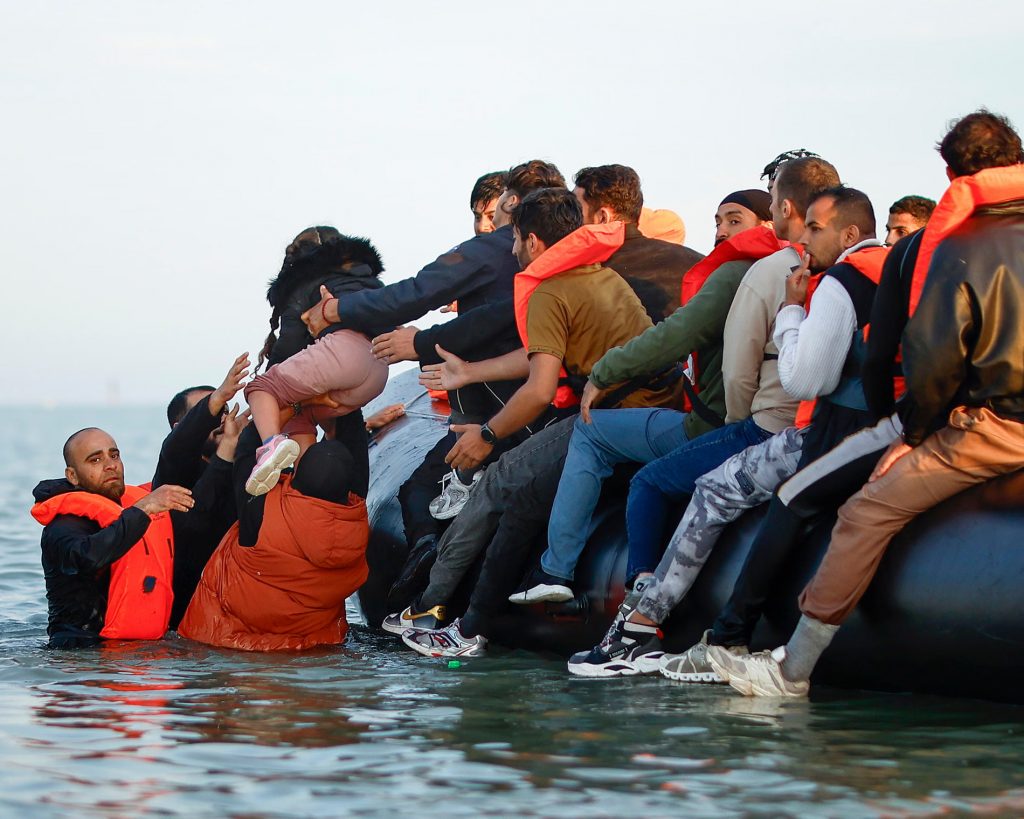France is reportedly stepping back from its recent promise to take stronger action at sea to stop small migrant boats from crossing the English Channel. According to multiple sources who spoke with the BBC, France is no longer fully committed to the plan, which had aimed to intercept inflatable boats and bring them back to shore. This shift comes amid political tension in France and has sparked disappointment in the UK government, which had hoped for stronger cooperation to curb migrant crossings.
Videos shared with the BBC show a police patrol boat circling a small dinghy in a shallow canal near Gravelines, without intervening. Despite earlier commitments to act, French maritime officials now say the new “maritime doctrine” — designed to authorize sea interceptions — is still under review. A French security insider told the BBC that the promise was “mostly political talk” rather than a real policy.
The now-shelved approach was introduced under former Interior Minister Bruno Retailleau, who was credited for pushing a tougher stance on illegal crossings. Retailleau worked closely with the UK and attended a summit between President Emmanuel Macron and Prime Minister Sir Keir Starmer last July. The meeting focused on tackling the so-called “taxi boats” — inflatable vessels used by smugglers to pick up migrants waiting in shallow water near the coast. However, with Retailleau out of office following a government reshuffle, the French government appears distracted by other domestic challenges.
Despite these promises, overcrowded boats continue to leave the French coast daily, especially from the area near Dunkirk. Locals in Gravelines have filmed several small boats departing within hours of each other. One resident, Jean Deldicque, told the BBC he had seen four boats leave in a single day, calling the situation “mad” and demanding stronger action to stop them. Videos show police boats nearby, but they rarely intervene, even when boats are overloaded with migrants.
Experts say that French authorities are hesitant to use force at sea due to the high risk of fatalities and potential legal consequences. A maritime expert told the BBC that missions to stop small boats could lead to tragic outcomes and legal cases against officers. “The French navy knows it’s dangerous and could end badly,” the source explained. Some even fear that aggressive sea operations could increase the number of drownings in the Channel.
Current French rules only allow police to step into shallow water when someone is in immediate danger. Although British officials had suggested giving French police more power to act in the water, French unions rejected the idea, saying it was too dangerous. Jean-Pierre Cloez, a police union spokesman, confirmed that plans to expand intervention powers are now “on hold” and that the rules remain unchanged. He also cited ongoing shortages in equipment, personnel, and training.
Even with these setbacks, France is not abandoning its broader border operations. The country still runs a large-scale coastal patrol effort covering 150 kilometers of shoreline, supported by funding from the Sandhurst Treaty, which the UK helps finance. British and French authorities continue to work together, though tensions remain over how much each side should do.
Meanwhile, volunteer sea rescue teams along northern France continue to save migrants from drowning. Gérard Barron, head of Boulogne’s sea rescue volunteers, said they often face difficult situations. Some migrants refuse help, fearing arrest or deportation. “Our crews have seen men flashing knives and even threatening to drop infants into the water if we get closer,” Barron shared. These moments show the complexity of balancing humanitarian duty with law enforcement.
With over 36,000 people crossing the Channel in small boats so far this year, the numbers are already up 30% compared to last year. Experts warn that without consistent cooperation between France and the UK, the crisis will only deepen. A Home Office spokesperson said, “France remains a key partner in tackling illegal migration, and we continue to work closely together as they review their maritime policies.”

